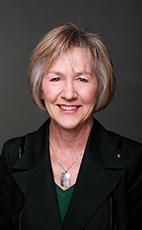Mr. Speaker, I am delighted to also join the debate on the opposition motion, which states:
That, in the opinion of the House, the Prime Minister of Canada should hold annual First Ministers' Conferences.
Most Canadians would think that happens, or at least there are meetings with premiers of the provinces and territories, because it makes so much sense, as the member for Vancouver Centre so eloquently pointed out. However, that has not happened.
When the member for Oak Ridges—Markham spoke earlier in the debate, he commented that if people had been in a provincial government during the time of the previous Liberal government, they would have been very critical of it. I have news for the member for Oak Ridges—Markham. I was in a provincial government. I was in the B.C. government from 2001 until 2005, under a previous Liberal government. I was at the front lines around the cabinet table when our premier would come back from these first ministers conferences. He would talk about what had been sparked, where there was a growing consensus on a big issue that Canadians across the country faced, and what he personally would like to do about it. We were all engaged in how we could help move these issues forward, hand-in-hand with the provinces and territories and our federal government.
I would like to point out for the members of the Conservative Party that Canada is a federation, which means that it is a union of partially self-governing states or regions under a central or federal government. We are not a monarchy. We are not a republic nor a dictatorship. We are a federation, and that means we need to work together to advance the big public policy issues where there is a common interest across the country. They may not always be exactly the same interests, but they are common interests.
As my colleague mentioned, a number of those initiatives came out of these meetings of the first ministers with the prime minister, and that was while I was in the provincial government. I saw first hand how the 10-year national health accord started to bloom as an idea through those premiers and the prime minister working together. What came out of that, for the first time, was a consensus and a way forward on how to join forces, reduce duplication, reduce overlapping initiatives, learn from each other and begin to tackle the huge challenges that people faced across the country with wait times for surgeries and other matters that cost them their good health. That came from a meeting of first ministers and the prime minister.
There was the Kelowna accord. Today, our indigenous peoples are suffering. They do not experience the kind of forward movement that would have happened had the current government not scrapped the Kelowna accord. The accord, once again, was from the premiers meeting with the prime minister. The premier of British Columbia, in particular, decided that this would be a real priority for the Province of British Columbia, so he joined in a leadership role with the prime minister of the day, Paul Martin. He decided to help advance it by working with premiers from across the country, enrolling and eliciting their support for the concept. In the end, we had an agreement among all of the provinces and territories and, most important, with the representatives for all indigenous peoples across Canada.
What do we have today? Our indigenous peoples feel they need to rise up across the country, with demonstrations like “Idle No More”, to get the point across that they are being left out. The comprehensive framework of addressing the inequities and Canada's shameful carry-over of its colonial history have not been resolved. The Kelowna accord would have set the foundation to do.
A national child care plan was another for which I sat at a cabinet table and we wrestled with how we would enter into an agreement for a national program and maintain the unique characteristics of the child care funding, support and principles in British Columbia. Those kinds of conversations at first ministers conferences helped to power through those complicated differences among us to the point where there were some real outcomes, and the national child care plan was not only negotiated, but was agreed on right across the country.
The first year of funding from the federal government actually flowed to the provinces, and they had one year out of that five-year plan to address the desperate inadequacy and lack of child care in the provinces. Sadly, that is another critical program that the NDP, under its previous leader, voted against, brought down the Liberal government, and the national child care plan was scrapped to the detriment of families across the country.
It is not just about the things that were done through this collaboration. I also want to speak briefly to some huge failures that are a result of this kind of collaboration not happening. This includes all of the wasted time and energy on Senate reform by the Prime Minister, who never bothered to reach out and meet with colleagues to learn what their appetite for change would be and what kind of change they would support.

